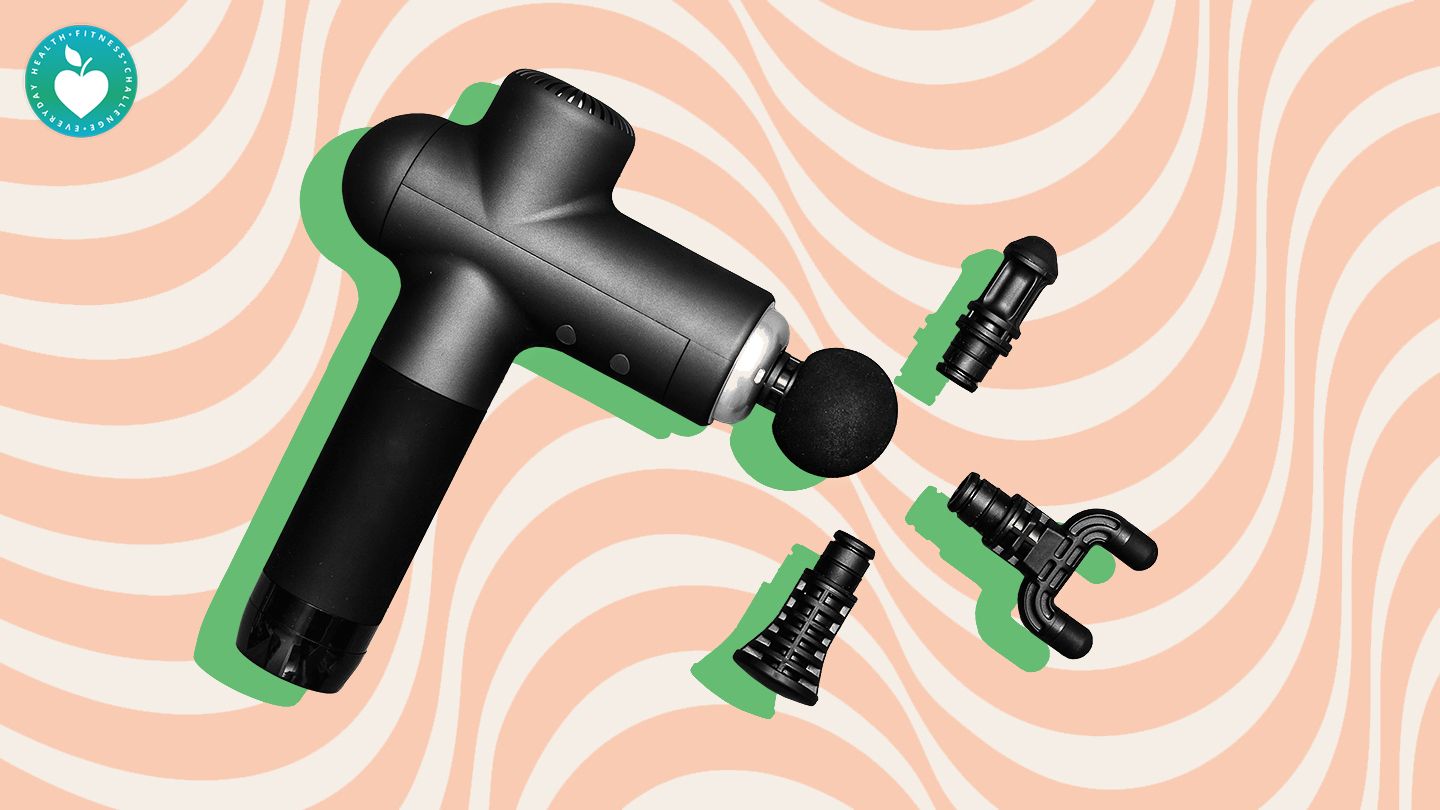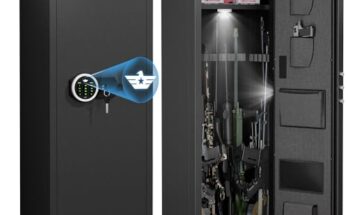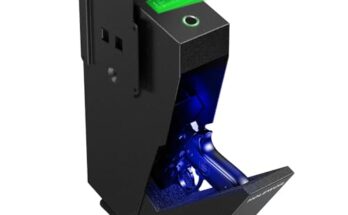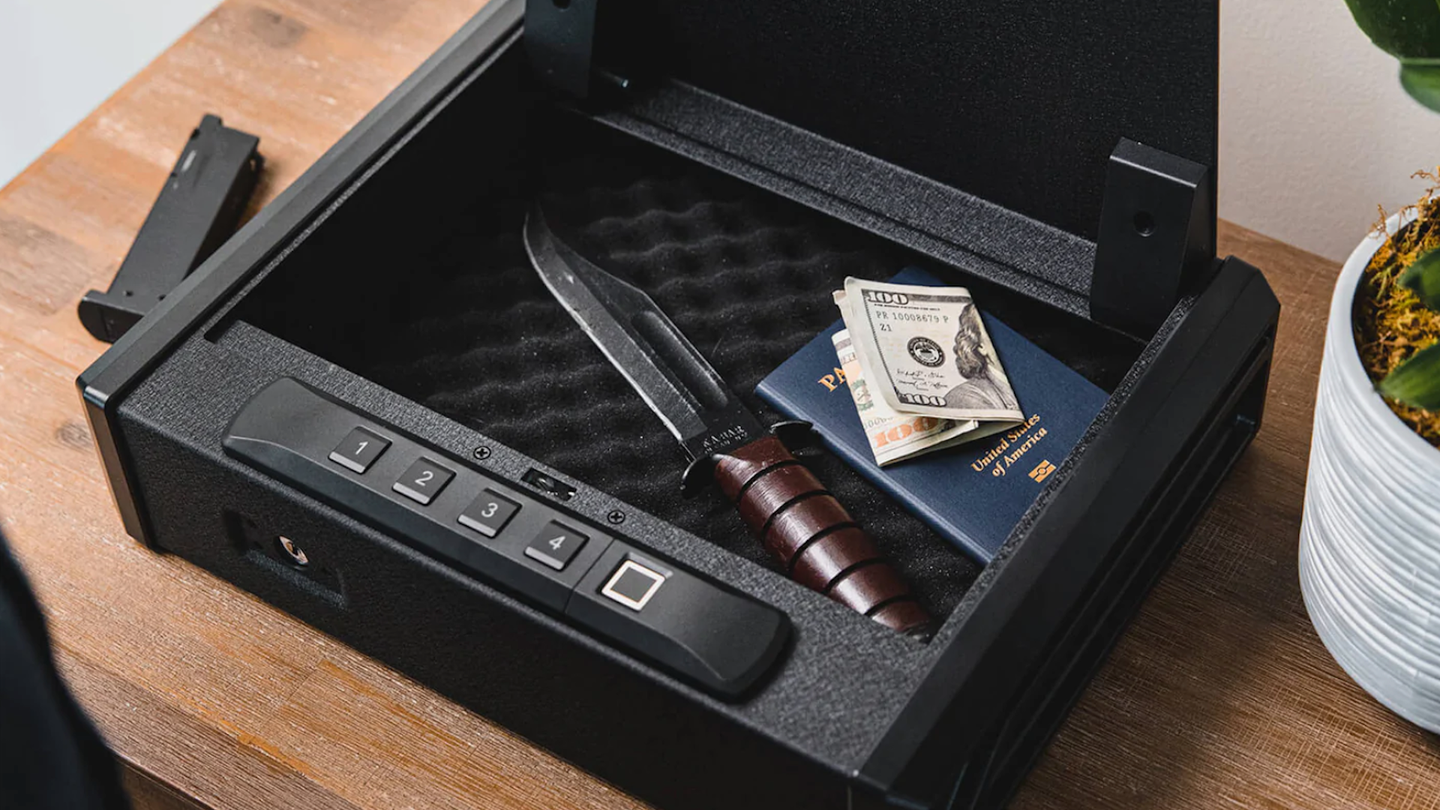Before buying a used gun, check its condition and legality. Understand the firearm’s history and ensure proper transfer protocols.
Purchasing a used firearm can be a smart choice for budget-conscious enthusiasts or those seeking a piece with history. Yet, diving into the secondhand gun market requires due diligence. You must assess the weapon’s physical state, as wear and tear could affect its performance.
Confirming the gun’s legal status is crucial to prevent inadvertently buying a stolen or illegal firearm. Researching the gun’s past use and ownership helps to ensure you’re making a knowledgeable purchase. It’s also vital to adhere to all local and federal laws regarding firearm transfers, which may entail background checks and paperwork. This practical approach not only protects you legally but also promotes responsible gun ownership. With thorough research and attention to detail, you can make an informed decision that balances cost with reliability and peace of mind.
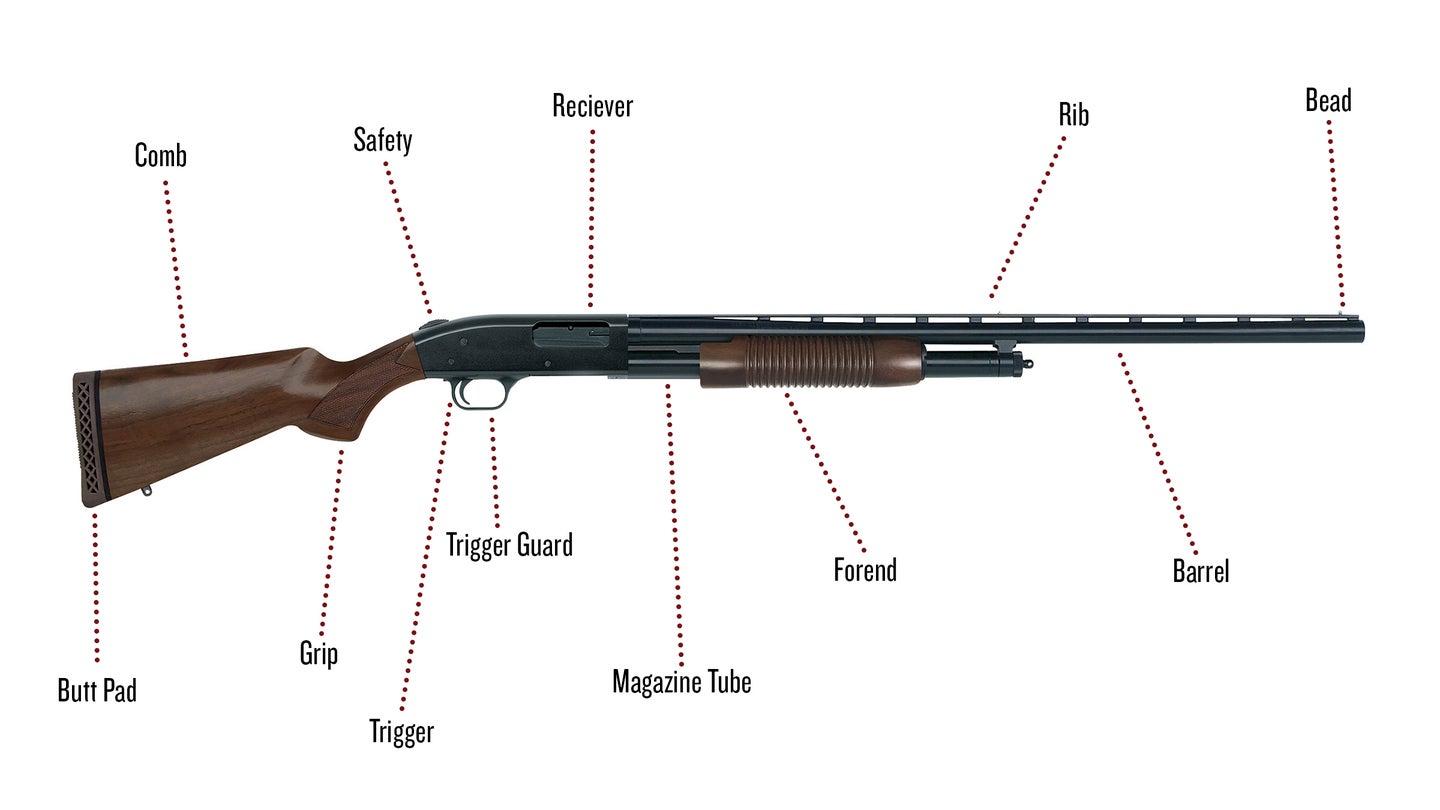
Credit: www.fieldandstream.com
Initial Considerations Before Purchasing
Embarking on the journey to buy a used gun requires careful thought. Smart buyers consider their needs, budget, and the firearm’s history before a purchase. Understanding these elements ensures a match between the buyer and the firearm.
Setting A Budget
Deciding on a budget is the first step. A clear budget guides the search. It prevents overspending and narrows choices. Consider total costs, including accessories, licenses, and possible repairs for the used gun.
Determining Purpose And Preferences
- Identify the gun’s purpose: Is it for sport, defense, or collecting?
- Define personal preferences: What fits best in your hand? Which caliber do you prefer?
- Match your needs with the gun’s features: in size, safety, and capacity.
Researching Models And Market Values
Before making an offer, research is crucial. Learn about different models. Read reviews from credible sources. Seek out average prices for the used gun model. Use reliable platforms to compare current market values. This information ensures a fair deal.
Legal Aspects Of Buying Used Firearms
Purchasing a used gun comes with its own set of challenges, especially when it comes to legalities. Buyers must ensure they meet all legal requirements. They should understand the procedures to avoid penalties or legal complications.
Understanding Background Checks
Background checks are a cornerstone of gun ownership. They are crucial in determining eligibility to purchase firearms. Here’s what potential gun owners need to know:
- Federal law mandates background checks via the National Instant Criminal Background Check System (NICS).
- Private sellers at gun shows or through personal transactions may not always require them.
- It’s important to use a federally licensed dealer to facilitate the sale and background check.
State Laws And Regulations
State laws vary widely. They can affect how a used gun purchase unfolds. Be sure to consider the following:
| State | Requirement Highlights |
|---|---|
| California | 10-day waiting period, safety certificate |
| Florida | 3-day waiting period for handguns |
| Texas | No waiting period, but background checks enforced |
Note: This table exemplifies variations in state laws and does not cover all states or regulations.
Documentation And Transfer Procedures
Proper documentation ensures a legal transfer of ownership. Here are key aspects:
- Bill of Sale: Often required, it should detail the gun’s make, model, and serial number.
- Transfer Through an FFL: Transferring through a Federal Firearms Licensee (FFL) keeps the process legal.
- Keep Records: Retain all paperwork related to the sale and transfer.
Where To Find Used Guns
Embarking on the quest to purchase a used gun requires knowing the best places to shop. Variety, price range, and reliability of your source are crucial. Understanding where to look can transform your buying experience.
Local Gun Stores And Their Reputation
Local gun stores often feature a selection of used firearms. These establishments provide a hands-on experience, allowing shoppers to inspect guns closely. Reputable stores will usually offer limited warranties and stand behind their products.
- Consult reviews: Online feedback and word-of-mouth can indicate a store’s trustworthiness.
- Ask questions: Expert staff can guide your choice based upon your requirements.
Gun Shows: Pro Tips
Gun shows are bustling markets where individual enthusiasts and licensed sellers converge. Bargains and rare finds are commonplace.
- Research: Know the event’s vendors and the type of firearms typically available.
- Verify: Ensure sellers follow legal procedures for gun sales.
Online Platforms And Auction Sites
The digital marketplace offers convenient access to a global inventory of used guns.
| Platform | Advantages | Considerations |
|---|---|---|
| Online Retailers | Extensive selection, customer reviews | Inspect only upon delivery |
| Auction Sites | Competitive pricing | Beware of bidding wars |
Private Sales: Dos And Don’ts
Engaging in private sales can be direct but requires due diligence.
- Do: Meet in a public place and bring a knowledgeable friend.
- Don’t: Skimp on background checks and following local laws.
Inspecting A Used Gun
Finding the right used gun requires careful inspection. Aim to identify potential issues before purchase. Know what to look for to ensure a safe and reliable firearm. Begin with a thorough visual inspection. Check critical components for wear and tear. Ask the seller key questions about the gun’s history. This process helps you make a well-informed decision.
Visual Inspection: What To Look For
Start with the gun’s overall appearance. Look for signs of rust or corrosion. Examine the barrel for obstructions. Ensure sights are straight and intact. Verify that grips fit tightly and do not wobble. Check screws for signs of interference.
Checking For Wear And Tear
Focus on areas with moving parts. Look at the slide, frame, and trigger for unusual wearing. Slide movement should be smooth. The frame should show no cracks. Trigger action needs to be consistent. Use a flashlight to inspect the bore for pitting or scoring.
- Slide action: should operate without hesitation.
- Frame integrity: free of cracks or deformation.
- Trigger function: must be crisp and responsive.
Questions To Ask The Seller
Your next step is engaging the seller.
- Gun’s history: Ask for the gun’s usage and maintenance background.
- Replacements: Inquire about replaced parts or modifications.
- Problems: Direct questions about past malfunctions or repairs.
Remember, transparent sellers are likely offering a reliable weapon. Always prioritize safety and legality. Ensure the gun has a clear background before finalizing your purchase.
Testing The Firearm Prior To Purchase
Testing the firearm prior to purchase is a crucial step when buying a used gun. It ensures functionality and safety. This hands-on experience can reveal much about the gun’s condition. Always test fire a gun before sealing the deal.
Arranging A Test Fire
Set up a test firing session before buying. Contact the seller and ask for a safe place to test the weapon. Many gun shops have shooting ranges. Some sellers might facilitate the testing process.
What To Observe During Shooting
- Accuracy: Check if the gun hits targets well.
- Recoil: Feel the kickback. Is it manageable?
- Function: Test all mechanical parts. Ensure smooth operation.
- Condition: Note any wear or damage.
Seeking Expert Opinion
Always have an expert look at the gun too. They can spot issues easily. They will confirm if the gun is worth the price. Their insights are invaluable. Trust their judgement alongside personal testing.

Credit: www.ebay.com
Finalizing The Deal
Finalizing the deal on a used gun is like hitting the bullseye: aim for precision and clarity. Now, the target is in sight, and it’s time to pull the trigger on negotiation, paperwork, and ensuring everything is above board. Follow these steps to make sure the purchase is as smooth as the action of a well-oiled firearm.
Negotiating The Price
Price talks can feel like a strategic game. Start by researching the gun’s current market value. Use that knowledge to discuss the price. Remember, a respectful approach can unlock better deals. It’s essential to inspect the firearm in detail. Any signs of wear or damage could be points for price reduction. Agree on a fair price that satisfies both parties.
Completing The Necessary Paperwork
Paperwork is key in gun sales. Laws vary by location, so know your state’s requirements. Common forms include background checks and transfer documents. The seller must ensure they’re legally allowed to sell the firearm. The buyer must also meet all legal requirements to purchase and own the gun. Clearing these legal hurdles is necessary for a worry-free purchase.
Securing A Bill Of Sale
- A Bill of Sale is your proof of purchase.
- It protects both buyer and seller legally.
- It should include details of the gun, sale price, and date.
- Ensure it has names and signatures of both parties.
- Keep this document safe as it’s essential for your records.
- Inspect the gun carefully to ensure it matches the sale description.
- Record the serial number on the bill for future reference.
- Make two copies, one for each party.
After The Purchase
Congratulations on your used gun purchase! Owning a firearm comes with important responsibilities. To ensure safety and reliability, focus on proper care and enhancement of your new acquisition. The journey with your firearm has just begun.
Proper Gun Maintenance
Maintaining your gun is crucial for its performance and longevity. Start with a thorough cleaning. Use the right tools and solvents. Regular cleaning prevents malfunction and wear.
Below is a basic maintenance checklist:
- Disassemble following the manufacturer’s guidelines
- Clean barrel and chamber with a bore brush
- Wipe down and lubricate moving parts
- Inspect for worn or damaged components
- Reassemble and perform a safety check
Upgrading And Customizing
Enhancing your firearm increases its functionality. Opt for quality upgrades that fit your needs. Want accuracy? Consider a new sight. Need comfort? Look at grips or stocks.
Popular upgrades include:
| Upgrade | Benefit |
|---|---|
| Sights | Improved accuracy |
| Trigger | Smoother action |
| Grips | Better control |
Continued Firearms Education And Training
Firearm ownership demands ongoing education. Learn new skills and stay informed on gun safety. Regular practice at the range builds confidence and competence.
- Enroll in firearms training courses
- Practice regularly at a shooting range
- Stay updated on local gun laws
Remember, knowledge and practice make a responsible gun owner.

Credit: www.amazon.com
Frequently Asked Questions Of Things You Need To Know When Buying A Used Gun
What Should Be The First Gun To Buy?
Your first gun purchase should align with your intended use, such as a 9mm handgun for self-defense or a. 22 caliber rifle for target practice and training. Prioritize reliability, ease of use, and your comfort with the firearm.
Do You Need To Clean Your Gun After You Buy It?
Yes, cleaning your newly purchased gun before using it is recommended to ensure it functions safely and efficiently. Manufacturers often apply preservatives that should be removed before operation.
Do Used Guns Hold Value?
Used guns can retain value well, especially if they are rare, in good condition, or have historical significance. Maintenance and market demand significantly influence their resale value.
What New Gun Owners Need To Know?
As a new gun owner, prioritize safety with secure storage and practice proper handling. Educate yourself on local laws regarding ownership and carrying. Take a certified firearms training course, and always follow the basic gun safety rules. Regularly clean and maintain your firearm.
Conclusion
Purchasing a pre-owned firearm involves diligence and attention to detail. Remember to verify the gun’s history, ensure its condition, and comply with local laws. Investing time in research pays off, securing a safe and satisfactory acquisition. Embrace informed decisions for a responsible addition to your collection.
Stay informed, stay safe, and happy shooting!
